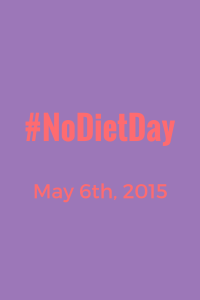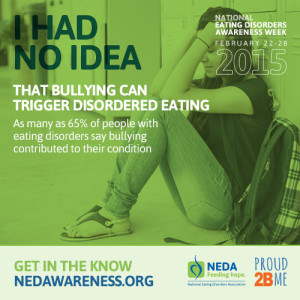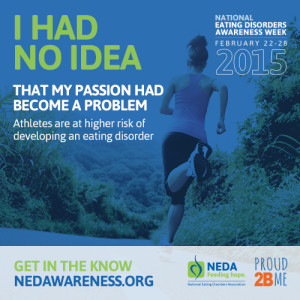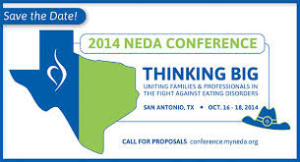 Of course if I had it my way…EVERYDAY would be #NoDietDay!!
Of course if I had it my way…EVERYDAY would be #NoDietDay!!
Here are just a few stats on dieting:
1. 95% of diets fail (weight is regained). ***Note: Diets fail–NOT people***
2. 20-25% of dieters progress to disordered eating or clinical eating disorders.
3. Studies show that dieting among female adolescents is a shared risk factor for purging, binge eating and overweight.
4. Food restriction increases risk for overeating and binge eating.
5. Studies suggest that dieting is a predictor of future weight GAIN.
6. Making people feel bad about their weight is a strong predictor of obesity.
7. It has been speculated that weight cycling (gaining and losing of weight) leads to chronic inflammation which is linked to cardiovascular disease and Type 2 Diabetes.
Sources:
The Association of Anorexia Nervosa and Related Disorders
The Science Daily Study: “Simply being called ‘fat’ makes young girls more likely to become obese: Trying to be thin is like trying to be tall”.
The Science Daily Study: “Dieting does not work, researchers say”.
Study: Influence of obesity, physical inactivity, weight cycling on chronic inflammation (2010).
Study: Medicare’s search for effective obesity treatments: Diets are not the answer (2007).
 l know that bullying is harmful to our children. And researchers and eating disorder professionals are now just starting to understand that bullying can contribute to disordered eating. If a pre-teen or teen has an eating disorder they could be using their eating disorder behaviors to cope with being bullied. To read more about how disordered eating/eating disorders are believed to be “helpful” in coping with life stresses please visit
l know that bullying is harmful to our children. And researchers and eating disorder professionals are now just starting to understand that bullying can contribute to disordered eating. If a pre-teen or teen has an eating disorder they could be using their eating disorder behaviors to cope with being bullied. To read more about how disordered eating/eating disorders are believed to be “helpful” in coping with life stresses please visit  22nd, kicks off
22nd, kicks off
